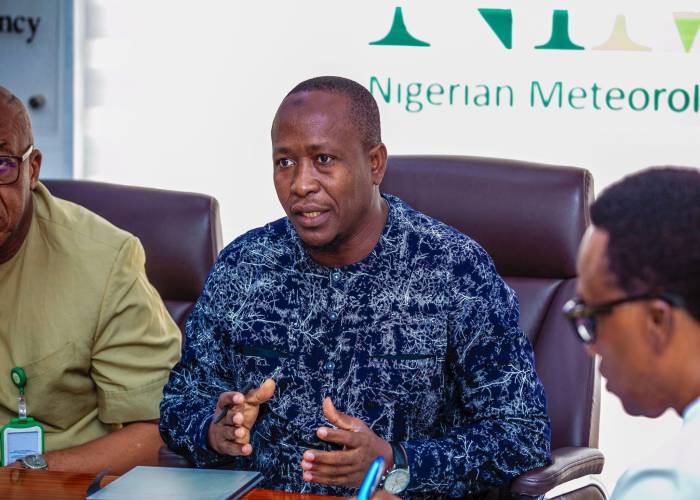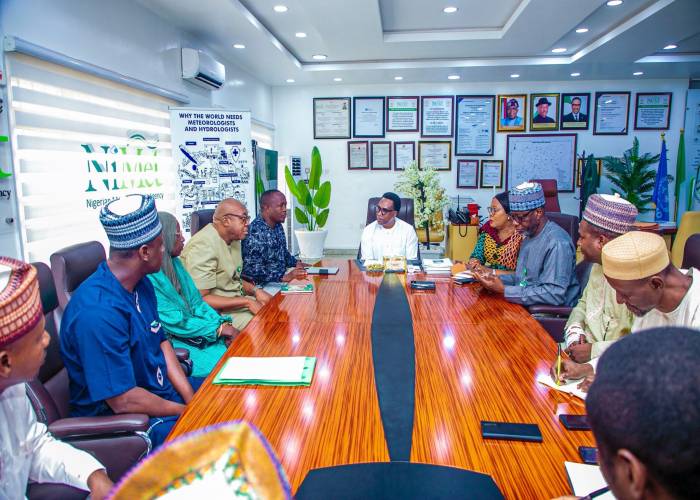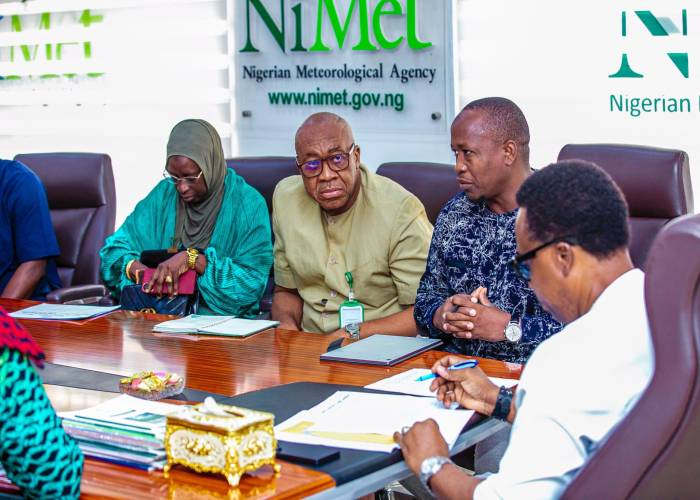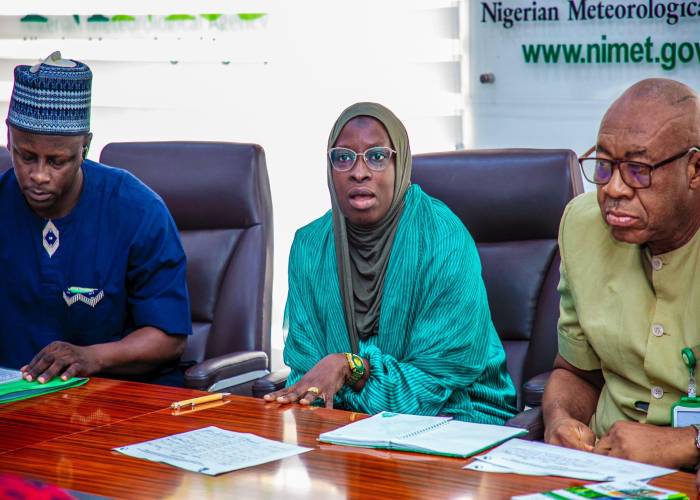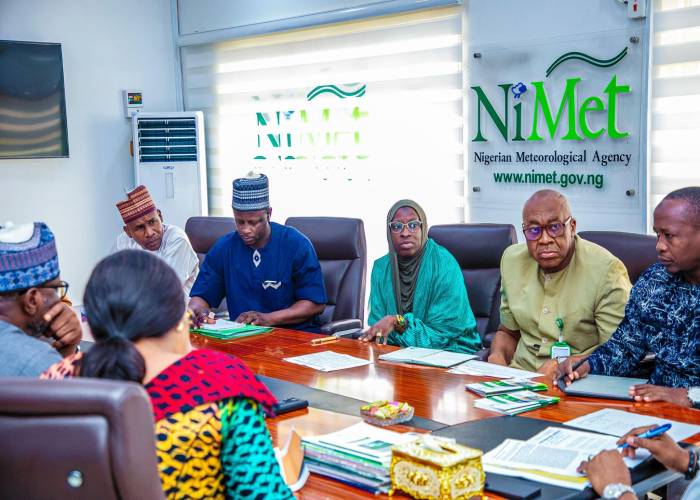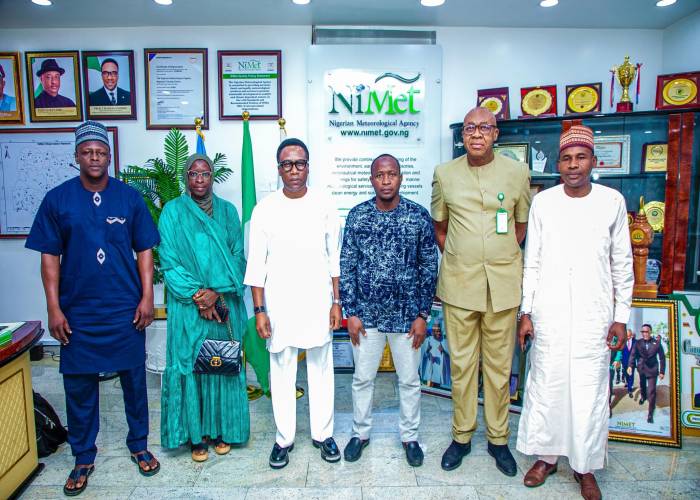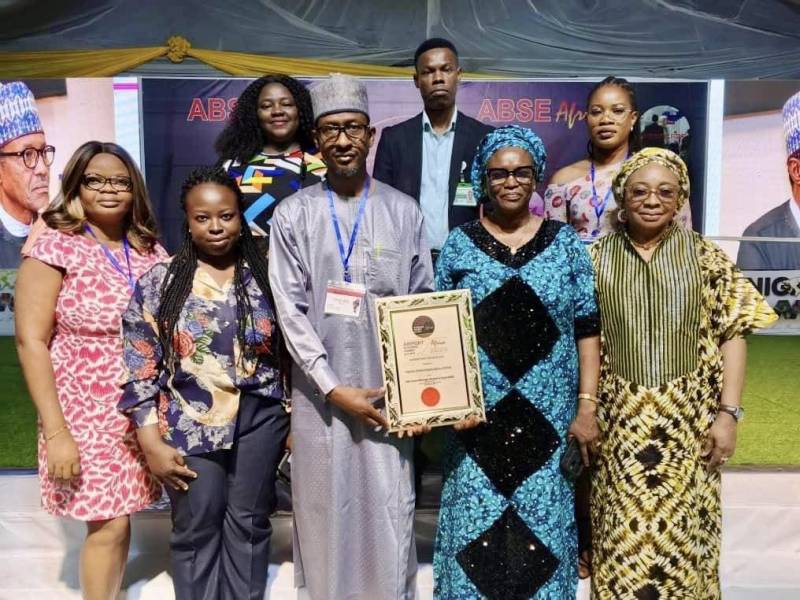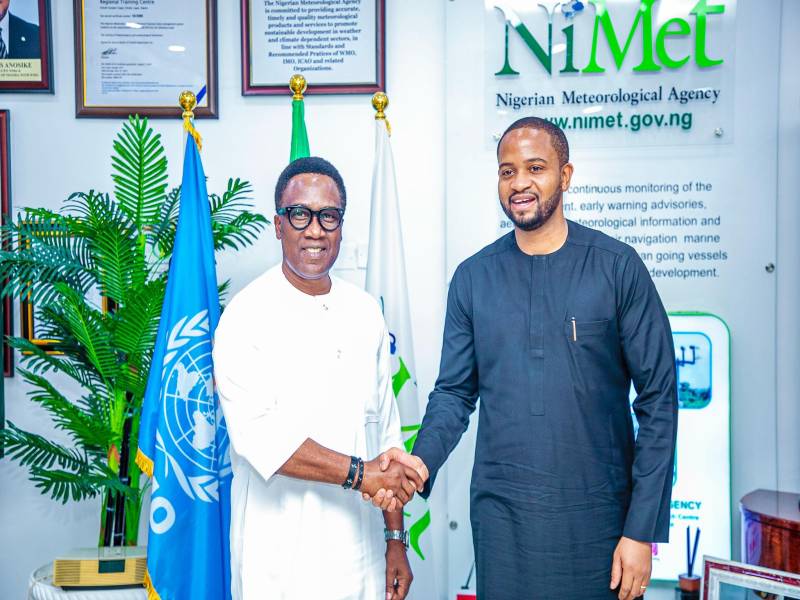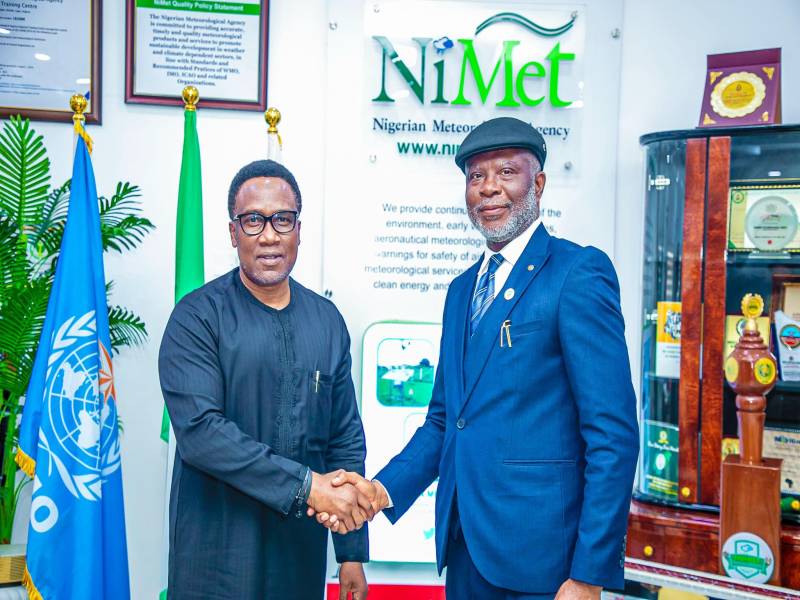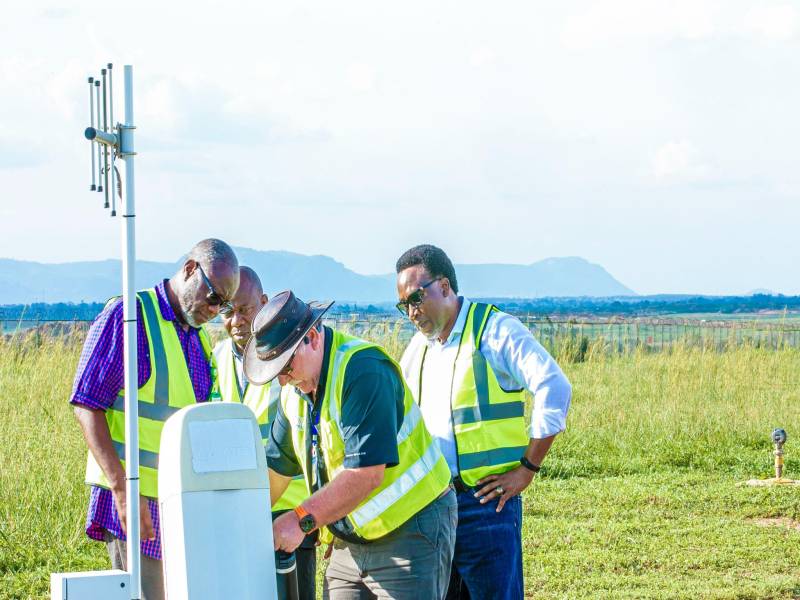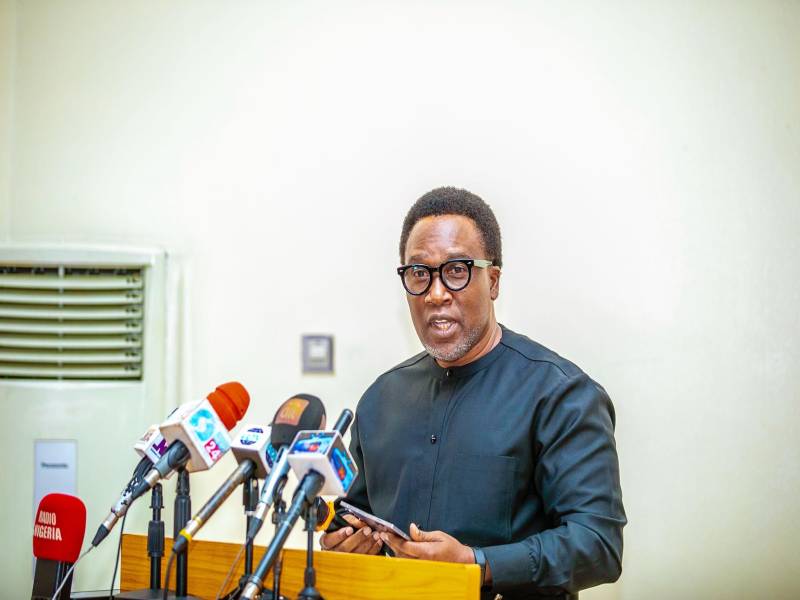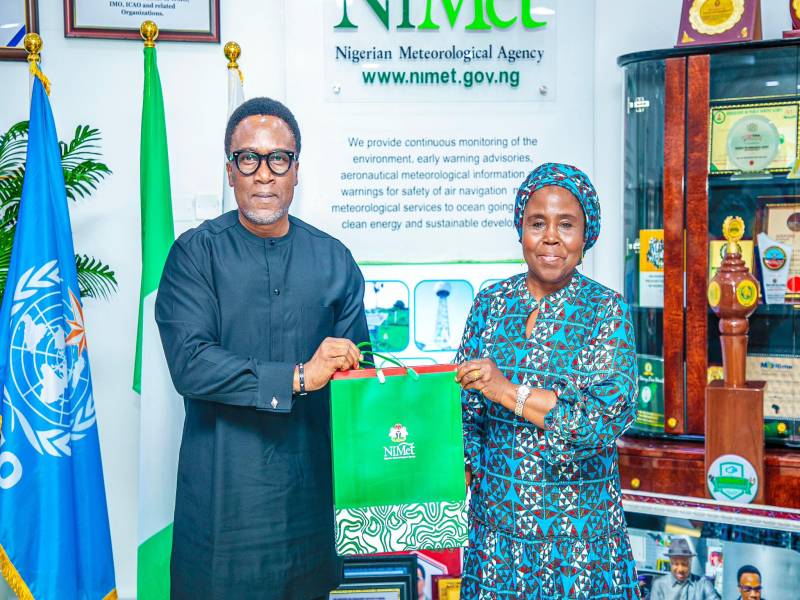The Nigerian Meteorological Agency (NiMet) reaffirmed its support for the Food and Nutrition Security Information System (FNSIS) during a courtesy visit from the Permanent Interstate Committee for Drought Control in the Sahel (CILSS) to NiMet Headquarters in Abuja.
Prof. Charles Anosike, the Director General/CEO and Permanent Representative of Nigeria with the World Meteorological Organization (WMO), highlighted NiMet's role in early warning systems, disaster risk reduction, and food security, noting its collaboration with the Federal Ministry of Agriculture and Food Security to downscale seasonal forecasts, enabling farmers to make informed decisions that improve agricultural productivity.
Prof. Charles emphasized the need for a coordinated and science-driven approach to predict, prepare for, and respond to food and climate shocks. He also shared insights into the National Framework for Early Warning and Early Action, developed by NiMet under the guidance of the World Meteorological Organization (WMO), to enhance coordination among institutions working on disaster risk reduction, food security, and climate resilience.
He assured the visiting team that the framework would be shared with all relevant stakeholders to foster synergy, eliminate duplication of efforts, and strengthen national response systems to food and climate-related emergencies.
The delegation, which was led by Mr. Williams Massaoud, commended NiMet for its critical role in climate services and emphasized the importance of incorporating meteorological data into the broader FNSIS. He noted that the PRISISAN Project (Project for Strengthening and Innovating Food and Nutrition Security Information Systems), under which the current mission is being undertaken, aims to support countries in the Sahel and West Africa in building robust and sustainable information systems for effective food crisis management.
Mr. Massaoud further highlighted that the mission includes representatives from the Food and Agriculture Organization (FAO), the World Food Programme (WFP), the Federal Ministry of Agriculture and Food Security (FMAFS), the Cadre Harmonisé Taskforce, and other key development partners committed to tackling food and nutrition insecurity in the region.
In his closing remarks, Prof. Anosike reiterated the importance of collective action, urging all relevant stakeholders to collaborate in tackling food insecurity through the development of a coordinated, data-driven, and integrated food security information system that supports evidence-based decision-making and long-term resilience.




